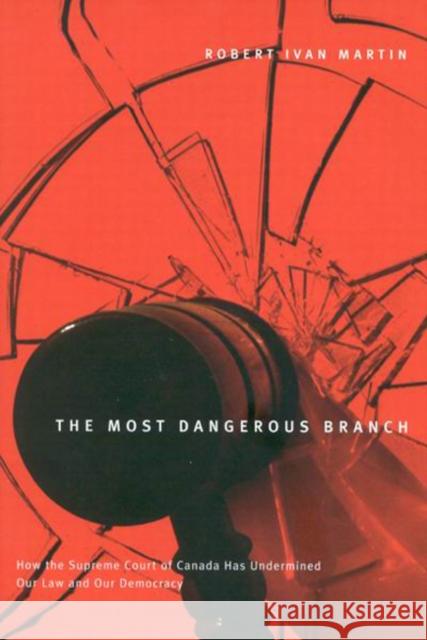The Most Dangerous Branch: How the Supreme Court of Canada Has Undermined Our Law and Our Democracy » książka
The Most Dangerous Branch: How the Supreme Court of Canada Has Undermined Our Law and Our Democracy
ISBN-13: 9780773526143 / Angielski / Twarda / 2003 / 320 str.
The Most Dangerous Branch: How the Supreme Court of Canada Has Undermined Our Law and Our Democracy
ISBN-13: 9780773526143 / Angielski / Twarda / 2003 / 320 str.
(netto: 465,50 VAT: 5%)
Najniższa cena z 30 dni: 482,79 zł
ok. 30 dni roboczych
Bez gwarancji dostawy przed świętami
Darmowa dostawa!
Judges on the Supreme Court of Canada are guided by reason and principle - or so most Canadians think. In The Most Dangerous Branch Robert Martin argues that the court has changed from acting on principles to acting on values, allowing it to impose its own personal preferences. As judges are not elected, Martin argues, they should not be permitted to set the social agenda, amend legislation, amend the constitution, or attack democracy and democratic institutions. this in dealing with abortion, assisted suicide, homosexuality, and Quebec secession through decisions that were guided not by reasoned understanding of the principles of law but by the values of judges - values they, as unelected representatives of the Canadian state, had no right to impose. Martin shows that Supreme Court judges have adopted an orthodoxy of moral relativism and identity politics that he likens to a secular state religion. This orthodoxy denies the possibility of objectivity about human endeavour and regards social reality as constructed. While purporting to be concerned with the plight of the oppressed, it is actually based on profound condescension. Martin believes that the theocracy which dominates the Supreme Court of Canada is subverting democracy and the rule of law. In The Most Dangerous Branch he calls on Canadians to take back their country.











